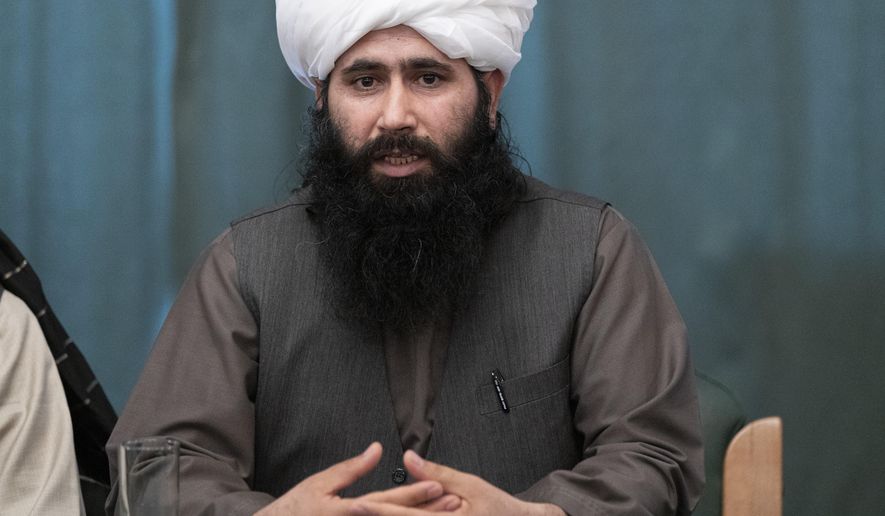The U.S. war in Afghanistan could end the way it began: with the Taliban in power.
When President Biden announced he would end “America’s longest war” by withdrawing the last U.S. troops from Afghanistan by Sept. 11, the possibility of a Taliban takeover of Kabul appeared to increase.
Should ongoing negotiations between the Taliban and the U.S-backed government of President Ashraf Ghani fail to produce a power-sharing agreement, it is feared the Taliban, which controls or contests large swaths of the country, may press its military advantage in an attempt to retake the capital from Afghan security forces that rely on U.S. air support.
The possibility of the Taliban returning to power, having survived 20 years of combat with militarily superior U.S. forces, is merely one issue hanging over Mr. Biden’s decision to withdraw.
Critics, including some congressional Republicans, warned Afghanistan might return to the chaos that allowed al Qaeda to seek refuge there in the mid-1990s. And human rights groups are concerned the fleeting gains obtained by Afghan women since 2001 would be lost should the ultraconservative Talibs regain control.
“You’d have to be a little crazy not to want a way for U.S. troops to finally end this conflict, and the American people want that. There is no question. Across the political spectrum, that has a lot of support,” said Johnny Walsh in the latest episode of the History As It Happens podcast. Mr. Walsh is a former U.S. diplomat who negotiated with the Taliban at the peace table in Doha, Qatar, after then-President Obama initiated secret peace talks in 2010.
“At the same time, everyone who is invested in Afghanistan is worried about what is going to wait for the country after the troops leave, and none of us has a good answer as to what that will be,” said Mr. Walsh, who is now a senior expert on Afghanistan at the U.S. Institute of Peace.
The Taliban’s first regime formed in 1996 after the group prevailed in Afghanistan’s long and bloody civil war. The country was broken by nearly constant conflict and humanitarian crises since the Soviet invasion in 1979, and the Taliban was incapable or unwilling to rebuild the state to provide anything resembling government services.
A quarter-century later, Mr. Walsh said the Talibs’ attitudes about governance have changed somewhat for the better. Some factions may also realize they will need to work with the Ghani government in a power-sharing agreement, rather than attempt to topple Mr. Ghani, to prevent Afghanistan from sliding into further chaos after the U.S. withdrawal.
“I would not describe them as ready to take over the running of an efficient state,” said Mr. Walsh. “That may be a point of leverage. They are going to need help from the outside in whatever capacity they enter the government.”
For more of Johnny Walsh’s insights into the Taliban, as well as Washington Times national security reporter Guy Taylor’s observations about Mr. Biden’s decision, listen to this episode of History As It Happens.
SEE ALSO: History As It Happens: Biden, Khashoggi, and the messy U.S.-Saudi marriage




